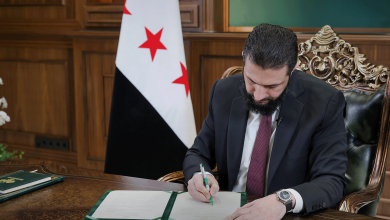In the lead-up to the world’s largest international book event, more than 600 European writers and authors have voiced their dissent over the cancellation of an award scheduled to be presented to Palestinian writer Adania Shibli for her novel, “Secondary Detail.”
Among the signatories of the protest are three Nobel laureates in literature: the French laureate Annie Ernaux (2022), the British-Tanzanian laureate Abdulrazak Gurnah (2021), and the Polish laureate Olga Tokarczuk (2018). This protest also includes a distinguished group of publishers and translators.
Adania Shibli, who resides in Berlin, was set to receive a literary award from the German Literature Society “Litprom” at the Frankfurt Book Fair for her novel “Secondary Detail,” published in 2017, on the upcoming Friday, October 20th.
The signatories, in a letter published in the French newspaper “Le Monde,” criticize the Frankfurt Book Fair for not creating spaces that allow Palestinian authors to share their literary perspectives during these challenging times, rather than silencing them.
They argue that it is essential to find new ways of writing, speaking, thinking, and engaging with this dark period, emphasizing the need for the voices of Palestinian writers, including Adania Shibli.
On October 13th, the Literary Society “Litprom,” the award’s organizing body partially funded by the German government and the Frankfurt Book Fair, announced that the award would not be presented to the writer during the event. Furthermore, the public event that was to feature the author and her translator, Gunther Orth, was also canceled.
While Litprom stated that the decision was made with the author’s consent, a New York Times article contradicted this claim. The Le Monde report suggests that the decision was imposed on Adania Shibli without her consultation.
Adania Shibli expressed her desire to use the event as an opportunity to reflect on the role literature can play in these challenging and painful times.
The Literary Society reiterated that it has not changed its position on awarding the prize to Adania Shibli despite the criticism and accusations.
The German Authors Association, in a statement, rejected the criticisms aimed at the novel and stated that literature should not be judged as better or worse or more dangerous due to changes in the news context. The decision of the judging panel regarding Shibli, which was made weeks before the event, was considered highly appropriate from political and literary perspectives.
Barbara Epler, the American publisher of Adania Shibli’s work, sent a letter to the editors of The New York Times, stating that canceling the event to silence Adania Shibli due to the war in Israel is a cowardly act. She also pointed out that claims of Adania Shibli’s consent, despite the ongoing suffering in Gaza, are far from the truth.
The petition by writers and authors criticizes the Frankfurt Book Fair for disproportionately amplifying Israeli voices while diminishing the space for Palestinian voices, despite other literary critics refuting allegations of anti-Semitism against the novel.
The letter emphasizes that the events in the novel are well-documented and narrate the rape of a young Bedouin Palestinian woman by Israeli soldiers in 1949. It quotes the British publisher of the novel, Jack Stoddard, who stated that one of the primary purposes of literature is to promote understanding and dialogue between cultures.
In the spirit of these ideals, the letter, signed by writers, translators, and publishers, asserts that canceling cultural events is not a solution.
In addition to the three Nobel laureates, signatories of the letter include American philosopher and University of California, Berkeley professor Judith Butler, Senegalese writer Boubacar Boris Diop, French translator Stéphanie Dujols, Irish writer and Booker Prize winner Anne Enright, Canadian writer and director Naomi Klein, writer and publisher Farouk Mardam-Bey, and former Palestinian ambassador to UNESCO Elias Sanbar. Numerous other European writers, publishers, and translators have also added their names to the petition.
The Literary Society “Litprom” had previously stated, before the controversy erupted, that Shibli’s novel “Secondary Detail” was a meticulously crafted work that tells of the power of borders and what violent conflicts do to people. The society, which seeks to support world literature from countries in Africa, Asia, and Latin America, maintained its commitment to awarding the prize to Adania Shibli despite the criticisms and accusations.



